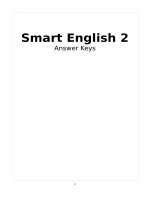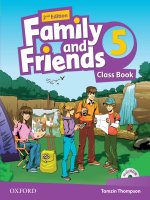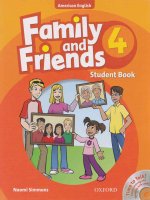Student book tn2 ak dap an
Bạn đang xem bản rút gọn của tài liệu. Xem và tải ngay bản đầy đủ của tài liệu tại đây (512.54 KB, 26 trang )
<span class="text_page_counter">Trang 1</span><div class="page_container" data-page="1">
Student Book TN2 AK - Đáp ántrắc nghiệm tham khảo (Trường Đại học Cần Thơ)
<small>Scan to open on Studocu</small>
Student Book TN2 AK - Đáp ántrắc nghiệm tham khảo (Trường Đại học Cần Thơ)
<small>Scan to open on Studocu</small>
</div><span class="text_page_counter">Trang 2</span><div class="page_container" data-page="2"><b>GRAMMAR READINESS SELF-CHECK</b>
<b>The simple present tense and the present continuous</b>
A
<b> </b><b> 1. are taking 2. is arriving, arrive 3. are going</b>
<b> 4. Does it rain 5. is going 6. like</b>
<b>Be going to + base form for the future</b>
A
<b> </b><b> 1. A: are they going to do B: </b>‘re going to go
<b> 2. A: ‘m going to need B: </b>Are you going to make
<b> 3. A: are you going to call B: </b>‘s going to wait
<b> 4. A: are you going to do B: </b>we’re going to do
<b> 5. A: ‘s going to be B: </b>is going to come
<b>Can, have to , could, and should: meaning and form</b>
A
<b> </b><b> 1. b. should make 2. c. can wear 3. b. has to</b>
<b> 4. c. shouldn’t take 5. a. can take 6. b. don’t have toObject pronouns</b>
A
<b> </b><b> 1. Please call us about it. 2. She’s buying it for you. 3. She doesn’t like them on him. 4. He wrote it for her.</b>
<b> 5. They’re giving it to them.</b>
<b>1. I gave her it yesterday.</b>
<b> 2. The clerk gift-wrapped them for him.</b>
<b>Comparative adjectives</b>
A
<b> 1. worse</b><b> 2. more convenient 3. more comfortable 4. more affordable 5. better</b>
<b> 6. hotter 7. longer</b>
B
<b> Answers will vary. (Use these comparative forms </b>in the answers: cheaper, more popular, nearer, faster.)
<b> 4. most appropriate 5. most unusual 6. largest</b>
<b> 7. </b>most beautiful
<b> 8. shortest 9. craziest</b>
<b> 10. most interesting</b>
<b>The simple past tense: statements</b>
A
<b> 1. went 2. got in 3. took 4. ate 5. had 6. didn’t have 7. </b>met<b> 8. loved 9. bought 10. said 11. walked 12. drank 13. went 14. slept</b>
B
<b> Answers will vary. (Use the simple past tense: </b>went, got dressed, ate, came home.)
<b><small>Note: In communicative exercises where several answers are possible, this answer key contains some examples of </small></b>
<small>correct answers, not all possible answers. Any valid answer in this type of exercise should be considered acceptable.</small>
<b>Student’s Book Answer Key</b>
</div><span class="text_page_counter">Trang 3</span><div class="page_container" data-page="3"><b>The simple past tense: yes / no questions</b>
<b> 5. How long did your parents live</b>
<b>UNIT 1</b>
<b>PREVIEW </b>D
<b> Focus on language 1. I could show you around. 2. We should keep in touch. 3. You look familiar.</b><b> 4. What have you been up to?</b>
E
<b> Think and Explain</b><b> 1. He thinks he recognizes him. 2. No. He hasn’t been doing much. 3. So that they can keep in touch. 4. To show Taka around in Acapulco</b>
<b>LESSON 1: Get reacquainted with someone</b>
B
<b> Pair work</b><b> 1. A: Has Jake met our new teacher?</b>
<b> B: </b>Yes, he has. He met her in the office this morning.
<b> 2. A: Have they been to this class before?</b>
<b> 3. A: Have you eaten in the new school restaurant? B: </b>No, I haven’t. Is it good?
<b> 4. A: Have your classmates spoken with the school </b>
<b> B: </b>Yes, they have. They spoke with her yesterday.
<b> 5. A: Has Beth seen the new language lab? B: </b>No, she hasn’t. But she has seen the library.
C
<b> Grammar practice 1. decided</b><b> 2. have not seen 3. came</b>
<b> 4. have fallen 5. have visited 6. have been 7. went</b>
B
<b> Listen to activate grammar</b><b> 1. Has she taken a tour of the Taj Mahal yet? </b>
No, she hasn’t.
<b> 2. Has he gone sightseeing in Kyoto yet? </b>
No, he hasn’t.
<b> 3. Has she ever tried ceviche? </b>
No, she hasn’t.
<b> 4. Has he already climbed the Pyramid of the Sun? </b>
Yes, he has.
<b> 5. Has she ever been to Rio de Janeiro before? </b>
No, she hasn’t.
<b> 6. Has she taken a tour of Sugarloaf yet? </b>
No, she hasn’t.
<b>LESSON 3: Discuss gestures and customs</b>
A
<b> Identify supporting details</b>✓<b> 1 In most of Europe, a thumb and an index </b>
finger mean “two.”
✗<b> 2 In North America, a thumb and a pinkie mean </b>
“two.” In China a thumb and pinkie mean “10.”
✓
</div><span class="text_page_counter">Trang 4</span><div class="page_container" data-page="4">✗<b> 4 To be friendly, North Americans greet others </b>
with a light handshake. In North America a light handshake may seem unfriendly.
✗<b> 5 Everyone uses the thumbs-up sign for “that’s </b>
good.” The thumbs-up sign is rude in Australia and the Middle East.
<b>LESSON 4: Describe an interesting experience</b>
B
<b> Listen for details</b><b> 1a She visited over 25 countries.</b>
<b> 1b When they say yes, they shake their heads </b>
from side to side.
<b> 2c They prepared a meal with a lot of </b>
delicious dishes.
<b> 2d He didn’t want to seem rude.</b>
<b> 3e She has gone swimming with sharks. 3f She climbed Mount Everest.</b>
Harbour Centre Tower.
B
Answers will vary, but may include the following:<b> 1. Have you ever eaten Brazilian barbecue? 2. Have you climbed Mount Fuji before?</b>
<b> 3. Have you ever gone to the top of the Oriental </b>
Pearl Tower in Shanghai, China?
<b> 4. Have you been to Venice, Italy, before?</b>
<b>UNIT 2</b>
<b>PREVIEW </b>D
<b> Focus on language 1. it’s my treat</b><b> 2. I can’t stand 3. Frankly 4. a bunch of 5. I missed 6. I’ve heard</b>
E
<b> Infer meaning 1. film</b><b> 2. violent, bloody 3. spectacular</b>
F
<b> Think and explain</b><i><b> 2. Did Anna see Gangs of New York? No. </b></i>
How do you know? She says, “Nope, I haven’t.”
<i><b> 3. What movie does Anna suggest? Ice Age.</b></i>
<i>How do you know? She says, “Well, there’s Ice </i>
<b> 4. Who is going to pay for the popcorn? Peter. </b>
How do you know? He says, “I’ll get the popcorn.”
<b>LESSON 1: Apologize for being late</b>
A
<b> Grammar practice 1. for</b><b> 2. since 3. since 4. still 5. always 6. always 7. </b>lately
<b> 8. best 9. so far 10. already</b>
C
<b> Listen to activate vocabulary 1. Ted’s late because he overslept.</b><b> 2. Maude probably couldn’t find a parking space. 3. They’re going to be late because they are stuck </b>
in traffic.
<b> 4. First they missed the bus. Then they probably </b>
couldn’t get a taxi.
</div><span class="text_page_counter">Trang 5</span><div class="page_container" data-page="5"><b>LESSON 2: Discuss preferences for movie genres</b>
C
<b> Listen to infer</b><i><b><small>1 The Bottom of the Sea</small></b></i> <small>documentary</small>
<i><b><small>2 Tango in Tap Shoes</small></b></i> <small>musical</small>
<i><b><small>3 The Ant Who Wouldn't Die</small></b></i> <small>horror film</small>
<i><b><small>4 Chickens Never Wear Shoes</small></b></i> <small>comedy</small>
<i><b><small>5 Goldilocks Grows Up</small></b></i> <small>animated film</small>
<i><b><small>6 The Equalizer</small></b></i> <small>action film</small>
<i><b><small>7 Twelve Angry Women</small></b></i> <small>drama</small>
<i><b><small>8 City Under the Sea</small></b></i> <small>science fiction</small>
A
<b> Grammar practice 1. A: I’d like</b><b> B: </b>I’d rather not
<b> 2. A: Would you like B: </b>I would
<b> 3. A: see B: </b>I’d rather
<b> 4. A: Would B: </b>he would.
<b> 5. A: would like to B: </b>I would
<b>LESSON 3: Describe and recommend movies</b>
A
<b> Listen for main ideas</b><b> 2. romantic; violent; unforgettable 3. thought-provoking</b>
<b> 4. violent</b>
C
<b> Listening: Dictation</b><i><b> 1. First up is Popcorn, a new comedy starring David </b></i>
Bodine and Judy Crabbe.
<i><b> 2. Unfortunately, Popcorn is a complete waste of </b></i>
<i><b> 3. Our next film, The Vacation, is a well-acted and </b></i>
serious drama.
<b> 4. I highly recommend this wonderful film.</b>
<i><b> 5. Aquamundo is no science fiction film; it’s based </b></i>
on real scientific research.
<b> 6. A beautiful film. Don’t miss it.</b>
<b> 7. Adults will find the story stupid, but children </b>
won’t forget these bloody, scary scenes for a long time.
<b>LESSON 4: Discuss effects of violence on viewers</b>
A
<b> Understand from context 1. An aggressive</b><b> 2. encourage 3. murder</b>
<b> 4. harm 5. prevent 6. a consequence</b>
B
<b> Confirm content</b><b> 1. Viewing violence can cause a growth in </b>
aggression in children; children may find violence “normal” and accept it in society; children may do violent things themselves.
<b> 2. Most harmful are realistic violent action </b>
programs and movies, and violent cartoons.
<b> 3. Some long-term effects of viewing violence are </b>
that children who view violence may be more likely to behave aggressively as teenagers; they may commit violent crimes as adults.
<b> 4. A bad message that may come from violent </b>
programs is that violence is ok or normal.
<b> 5. Parents can prevent young children from </b>
seeing any violent programs. For older children, parents can limit how many violent shows they see and discuss violent shows with them to tell them that violence is not ok.
B
<b> 1. A: Have you seen a good comedy lately? B: </b>To tell you the truth, no. But last night we
saw a great action film.
<i><b> 2. A: How many times have they seen War of </b></i>
<i>the Worlds?</i>
<b> B: </b>That remake of the old science fiction movie? I think they’ve seen it twice so far.
<b> 3. A: Sally is such a musical fan. How long has she </b>
waited for this film to come out on DVD?
<b> B: </b>She’s waited for at least six months.
<i><b> 4. A: I haven’t seen a drama as good as Twelve </b></i>
<i>Angry Men.</i>
</div><span class="text_page_counter">Trang 6</span><div class="page_container" data-page="6"><b>UNIT 3</b>
<b>PREVIEW</b>D
<b> Focus on language 1. put this on</b><b> 2. give you a hand 3. checking out of 4. satisfactory 5. you‘re in a hurry</b>
E
<b> Think and explain</b><b> 1. The guest says she’s checking out. 2. The guest says her stay was very nice. 3. The guest says she’d like to put this on her </b>
Vista card.
<b> 4. The clerk says the shuttle will be leaving in </b>
twenty minutes.
<b>SPEAKING 1. wake-up service 2. bell service 3. shoeshine service 4. airport shuttle 5. laundry service 6. minibar</b>
<b> 7. room service</b>
<b>LESSON 1: Leave and take a message</b>
A
<b> Find the grammar</b>A: Hello? I’d like to speak to Anne Smith. She’s a guest.
B: I’ll ring that room for you. I’m sorry. She’s not answering. Would you like to leave a message? A: Yes. Please tell her Tim Klein called. I’ll meet her
at the hotel at three this afternoon. B: Is that all?
A: Yes. Thanks.
B
<b> Grammar practice 1. She’ll call</b><b> 2. your colleagues won’t be 3. He’ll need</b>
<b> 4. Who will take </b>
<b> 5. Your brother won’t arrive 6. The conference call will start 7. Do I have to</b>
<b> 8. Where will you meet</b>
C
<b> Listen for details</b><small>FOR: </small>
<small>FROM: Mr. Ms. Mrs. Miss </small>
<small> Please call Will call again Wants to see you Returned your callMessage: </small>
<small> Please call Will call again Wants to see you Returned your callMessage: </small>
<small>Hank Pitt </small>
<small>(Vicky) Denkus</small>
<small>She’ll be at 444-0987 till 6:00.</small>
<small>FOR: </small>
<small>FROM: Mr. Ms. Mrs. Miss </small>
<small> Please call Will call again Wants to see you Returned your callMessage: </small>
<small>Collin Mack</small>
<small> (Carol) Braun</small>
<small>She’ll call next week.</small>
<small>FOR: </small>
<small>FROM: Mr. Ms. Mrs. Miss </small>
<small>Please call Will call againWants to see you Returned your callMessage: </small>
<small>Patricia Carlton</small>
<small>He’ll be at the meeting at 3:00. He’ll see you then.</small>
<small> (Sam) Hill</small>
</div><span class="text_page_counter">Trang 7</span><div class="page_container" data-page="7"><b>LESSON 2: Check into a hotel</b>
<b> 1. factual 2. future 3. factual 4. future 5. factual 6. future</b>
<b> 7. you request; someone will bring 8. does she go; she needs</b>
C
<b> Listen for details</b><b>Bell service?</b>
<b>1</b> king-size
<b>2</b> king-size & rollaway
<b>LESSON 3: Request housekeeping services</b>
B
<b> Expand the vocabulary</b>Answers will vary.
A
<b> Listen for main ideas</b>The following should be checked:Room 586: Satisfied
Room 587: Not satisfied
B
<b> Listen for details</b>Room 586: The guest wants someone to take away the dishes, bring up extra towels and a hairdryer, and pick up a load of laundry.
Room 587: The guest wants someone to make up the room, bring up skirt hangers, and turn down the beds.
<b>LESSON 4: Choose a hotel</b>
A
<b> Draw conclusions</b>(Answers will vary but may include the following:)
<b> 2. the Hotel Newton 3. Yotel </b>
<b> 4. the Plaza Hotel</b>
<b> 5. Yotel or Casablanca Hotel or the Gershwin Hotel 6. The Hotel Newton</b>
<b> 1. dinner; wake-up 2. laundry; hangers</b>
<b> 3. make up the room; towels 4. shoeshine; room</b>
<b> 2. rollaway bed 3. suite</b>
<b> 4. king-size bed 5. twin beds</b>
<b> 2. If you walk to the restaurant, you’ll be there in </b>
fifteen minutes.
<b> 3. Mr. Wang will get a better job, if he does well on </b>
his English test tomorrow.
<b> 4. What will Karl do if the airline cancels his flight? 5. If you don’t like your room, who will you call?</b>
<b>UNIT 4</b>
<b>PREVIEW</b>D
<b> Focus on language</b>E
<b> Think and explain</b><b> 1. Let’s go somewhere for coffee and talk about </b>
the old days and what has happened since we last saw each other.
<b> 2. You shouldn’t do other things (like texting or </b>
talking on the phone) when you’re driving a car.
</div><span class="text_page_counter">Trang 8</span><div class="page_container" data-page="8"><b>LESSON 1: Describe a car accident</b>
B
<b> Pair work 1. taillight</b><b> 2. turn signal light 3. steering wheel 4. windshield wiper 5. gas pedal</b>
<b> 6. seat belt 7. headlight 8. trunk</b>
A
<b> Grammar practice 1. had</b><b> 2. was driving 3. was paying 4. was waiting 5. rang 6. answered 7. </b>stopped
<b> 8. hit 9. learned</b>
<b> 10. wasn’t speeding 11. had</b>
B
<b> Listen to activate vocabulary3 bumper, right headlight</b><b>2 hood 1 windshield4 trunk</b>
<b>LESSON 2: Describe a car problem</b>
<b> 1. fill, up 2. turn, on 3. pick, up 4. drop, off 5. turn, off</b>
B
<b> Grammar / vocabulary practice 1. I can’t turn them on.</b><b> 2. I’ll drop it off at 10:00. 3. Which button turns it off? 4. What time can I pick it up? 5. Please fill it up.</b>
C
<b> Find the grammar</b>A: I’m dropping off my car. B: Was everything OK?
A: Well, actually the windshield wipers aren’t working.
B: I’m sorry to hear that. Any other problems? A: No. That’s it.
B: Is the gas tank full? A: Yes. I just filled it up.
<b>LESSON 3: Rent a car</b>
A
<b> Listen for details 1. SUV</b><b> 2. minivan 3. compact 4. luxury car</b>
4 The caller was too young.
<b>LESSON 4: Discuss good and bad driving</b>
A
<b> Understand from context 1. multitasking</b><b> 2. following distance 3. aggressive</b>
<b> 4. inattentive 5. accident 6. blind spotREVIEW</b>
<b> 1. cut, off 2. tailgating 3. honking 4. gestured</b>
<b> 5. flashing his lights 6. weaving through traffic 7. staring</b>
</div><span class="text_page_counter">Trang 9</span><div class="page_container" data-page="9"><b> 1. sunroof 2. brakes 3. windshield 4. dashboard 5. seat belt</b>
<b> 6. emergency brake</b>
<b> 1. was not paying attention, had 2. did not stop, was not wearing 3. was talking, damaged</b>
<b> 4. was driving, occurred 5. were, standing, saw</b>
<b> 1. turn it on. 2. fill it up. 3. turn them on. 4. pick us up </b>
<b>UNIT 5</b>
<b>PREVIEW</b>D
<b> Focus on language</b><b> 1. Would it be possible to get a massage? 2. You’re in luck. Our eleven o’clock just </b>
called to cancel his appointment.
<b> 3. How much will the massage and haircut come to? 4. It will be 110 euros in all.</b>
<b> 5. Not a problem. 6. Well, that’s up to you.</b>
<b>LESSON 1: Ask for something in a store</b>
<b>B</b>
<b> Listen to infer</b><b> 1. shampoo 2. soap 3. sunscreen</b>
<b> 4. hand and body lotion 5. toothpaste</b>
<b> 6. hairspray</b>
<b>Grammar practice 1. any</b>
<b> 2. lots of 3. a lot of 4. any 5. any 6. much 7. some 8. any</b>
C
<b> Find the grammar</b><b>A: Excuse me. Where would I find sunscreen?B: Sunscreen? Have a look in the cosmetics section, </b>
in aisle 2.
<b>A: Actually, I did and there wasn’t any.</b>
<b>B: I’m sorry. Let me get you some from the back. </b>
B
<b> Grammar Practice 2. anyone</b><b> 3. someone / anyone 4. anyone</b>
<b> 5. someone 6. Someone 7. </b>anyone
<b> 8. Someone 9. anyone 10. anyone</b>
<b> 11. Someone / No one 12. someone</b>
</div><span class="text_page_counter">Trang 10</span><div class="page_container" data-page="10"><b>LESSON 3: Discuss ways to improve appearance</b>
A
<b> Paraphrase 1. “No, thanks.” 2. unhappy 3. won’t 4. easy</b>B
<b> Understand from context</b>Answers will vary.
<b> 1. liposuction: surgical procedure that can </b>
remove fat
<b> 2. hair restoration: a way of treating hair loss 3. a face-lift: surgical procedure that “lifts” the face </b>
and neck to get rid of wrinkles and sun damage
<b> 4. a chemical peel: a procedure that removes the </b>
top layer of skin without surgery
C
<b> Confirm content and apply information</b>Josephine wrinkles and sun damage
chemical peel
Calvin hair loss surgical procedureDawson overweight try dieting before
considering surgery
<b>LESSON 4: Define the meaning of beauty</b>
A
<b> Listen to recognize someone’s point of viewMaya Prasad</b>I’m very lucky to be so beautiful.
✓ All the contestants were beautiful. I was just lucky.
✓ Physical beauty only lasts a short time.Love makes people beautiful.
<b>Ricardo Figueroa</b>
Physical beauty is not important at all.
✓ Both physical beauty and inner beauty are important.
Only inner beauty is important.
✓ Prasad represents an almost perfect combination of inner and outer beauty.
B
<b> Listen to take notes</b><b>warmth: She expresses her love for others easily.patience: She’s a wonderful listener and lets </b>
others speak. She doesn’t rush them.
<b>goodness and kindness: She spends time </b>
helping other people who have difficulties. Last year she taught art to children in a public hospital.
<b> 1. sunscreen 2. soap 3. makeup 4. toothpaste 5. body lotion 6. deodorant</b>
<b> 1. many 2. any 3. any 4. much 5. a lot of 6. someone 7. a lot of</b>
<b> 1. shave 2. haircut 3. pedicure 4. manicure 5. massage</b>
</div><span class="text_page_counter">Trang 11</span><div class="page_container" data-page="11"><b> 1. B: face-lift 2. B: a massage 3. B: hair restoration</b>
<b>UNIT 6</b>
<b>PREVIEW</b>E
<b> Focus on language 1. I have no idea. 2. I’d better pass. 3. I couldn’t resist.</b><b> 4. I’m watching my weight. 5. I had a craving for 6. I have to admit 7. turn down 8. just a bite</b>
<b>LESSON 1: Talk about food passions</b>
B
<b> Listen to activate vocabulary 1. is crazy about</b><b> 2. can’t stand 3. is a mango lover 4. isn’t crazy about pasta 5. is an ice cream addictGrammar practice 1. used to</b>
<b> 2. didn’t use to 3. didn’t use to 4. used to 5. used to 6. used to 7. </b>didn’t use to
<b> 8. didn’t use to 9. (answers will vary) 10. (answers will vary)</b>
<b>LESSON 2: Make an excuse to decline food</b>
B
<b> Listen to activate vocabulary</b><b>c 1d 2e 3a 4b 5</b>
<b>Grammar practice 1. A: Aren’t</b>
<b> 2. A: Wasn’t 3. A: Didn’t 4. A: Hasn’t 5. A: Isn’t 6. A: Didn’t</b>
<b>LESSON 3: Discuss lifestyle changes</b>
A
<b> Understand from context</b><b>LESSON 4: Describe local dishes</b>
A
<b> Listen for details c 1 chewy, sweet d 2 sweet; soft f 3 crunchy, spicy</b><b> e 4 salty, looks b 5 tastes, smells a 6 crunchy, saltyREVIEW</b>
A
<b> The following words should be crossed out: beef </b>and broccoli and noodles.
<b> 1. Isn’t 2. Wasn’t 3. Isn’t</b>
<b> 4. Haven’t, had/eaten 5. Aren’t</b>
</div><span class="text_page_counter">Trang 12</span><div class="page_container" data-page="12"><b>UNIT 7</b>
<b>PREVIEW</b>D
<b> Paraphrase</b>Answers may vary slightly.
<b> 1. I’m just joking.</b>
<b> 2. I’m not sure the furniture would match it / look </b>
good with it.
<b> 3. This is true. / Good observation.</b>
<b> 4. Maybe we’re not looking at / thinking about </b>
this correctly.
E
<b> Think and explain</b><b> 2. Chad says, “You wanted pink…”</b>
<b> 3. Chelsea says, I’m just pulling your leg, silly! Blue </b>
A
<b> Grammar practice 1. wants to make 2. suggest following 3. Decide to be</b><b> 4. don’t feel like socializing 5. learn to show</b>
<b> 6. Don’t expect 7. </b>to become
<b> 8. would like to meet 9. Be sure to ask 10. enjoy talking 11. Avoid talking 12. Practice asking</b>
<b> 13. begin telling / begin to tell 14. decide to get together 15. plan to do</b>
<b> 16. don’t mind trying</b>
B
<b> Find the grammar</b><b> 1. Experts say red attracts the most attention. </b>
Using red for traffic lights and warning lights makes them more noticeable.
<b> 2. Studies have shown that being in a yellow </b>
room makes it more likely for adults to lose their tempers and for babies to cry.
<b> 3. Green is the easiest color on the eye, and it </b>
causes people to relax. Painting a hospital room green helps patients get the rest they need.
<b> 4. Research has shown that looking at pink can </b>
cause people to feel tired. Some sports teams have painted the dressing room of the opposing team pink to reduce the players' energy.
<b> 5. Researchers in marketing have found that using </b>
blue in processed foods is unappealing. They believe that this is because blue is rare in nature. Painting a restaurant red, on the other hand, increases the appetite. Many restaurants are painted red.
<b>LESSON 2: Cheer someone up</b>
A
<b> Grammar practice 1. in telling</b><b> 2. about working 3. about having to 4. of flying</b>
<b> 5. to talking 6. with being 7. </b>of writing
<b> 8. (of) taking 9. about having to 10. of flying</b>
<b> 11. about going</b>
<b>LESSON 3: Discuss personality and its origin</b>
A
<b> Understand vocabulary from context</b><b>c 1d 2b 3</b>
f <b> 4</b>
<b>e 5a 6</b>
</div><span class="text_page_counter">Trang 13</span><div class="page_container" data-page="13"><b>LESSON 4: Examine the impact of birth order</b>
A
<b> Listen for main ideas</b>✓ Children in the same family usually have personalities that are determined by order of birth.
B
<b> Listen for specific information</b>Part 1
<b> 1 True 2 True 3 True 4 False 5 False</b>
Part 2
<b> 1 the middle child 2 only a little 3 Brian and Lucy 4 breaks</b>
Is rebelliousIs self-criticalPlays by the rulesShows off
C
<b> Classify information</b><b> 1. down 2. an extrovert 3. an introvert 4. the environnment 5. genetics</b>
<b> 1. about 2. in 3. with 4. about 5. about 6. to</b>
<b> 1. introvert 2. personality 3. traits 4. birth order 5. personality</b>
</div>








